Author – Ginny Chilton Maxwell is Music Minister at Church of the Ascension in Norfolk, Virginia, where she serves as organist, choirmaster, and elementary music teacher.
While doing research for my previous blog posts this summer I came across a group called “Music that Makes Community.” If you’re reading this blog it’s possible you’ve already heard of them. They are a nonprofit that works on a number of things related to communal singing, and I highly suggest you check out their website, but what I wish to highlight here is that everything they do is based on the belief that singing together is particularly effective at building community. This is an idea that may feel foreign to us in 21st century America but, in the not-so-distant past, you needed other people in order to have any music in your life at all. Before recorded music, everyone played an instrument or at least sang. Nearly everyone could keep a steady beat and hold a pitch (You have to be able to do those things if you want to create music together!). Think of how much certain songs or bands shaped who you were at different times in your life. Now, imagine you lived before recording technology was made available, and you and your friends and family had to make all that music yourself. We would all be much better musicians, (Yay!), but I’m more struck by how much more time we would have spent face-to-face with one another. I can’t help but wonder what a difference that would make in terms of belonging and community building.
Countercultural
Church is one of the few places that people still gather to make music together en masse. Recorded music has become so ubiquitous that we rarely even listen to music with others, nevermind sing it together; we each have our own self-curated list of songs on our smartphones which we listen to with earbuds on, keeping us from being able to enjoy even listening to music together. I think it’s pretty awesome that we church folk are so proudly countercultural that we will still sing together each Sunday morning (and during the week, too!). When we sing together, we are closer to each other. When we are closer to each other we cultivate a sense of belonging, we can provide for each other’s needs, and we can better communicate with one another. In a society that feels increasingly polarized, you might say making music together can be one way to start solving our problems.
Knitting Hearts Together
Creating places where people feel close to one another, where people are known and feel like they belong, is some of the most important work of the church. Communal singing is not just a fun activity, it is a way of knitting hearts together over time. When we are close to someone, we are seeing Christ in them and we are being Christ to them. If you are involved in music at your church, whether formally or informally, you are doing what Jesus called you to do. That is sacred stuff.
For more blogs by this author and others, go to our main blog page.


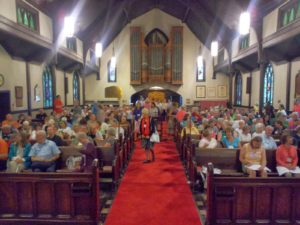

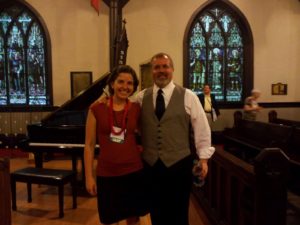
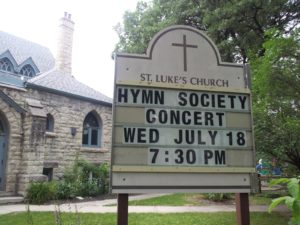
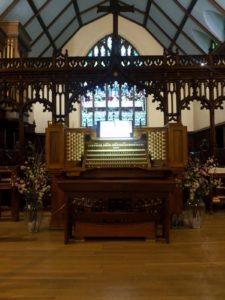


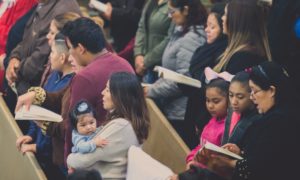 job that involves working at the school affiliated with my church. I have to say, I’d forgotten how much having children around makes each holiday feel so special. Children have an enthusiasm for celebrations and traditions that is infectious to the rest of us. Easter Sunday may not be a good time for the children’s choir to sing, but it’s perfectly appropriate to have them sing an Easter song on the Sunday(s) after Easter. Small children delight in having songs to sing that go with whatever season it is, so even if you’re working with children in a less formal setting than a choir, you can keep singing your resurrection songs all through the season. (Sidebar: I’ve found there aren’t enough Easter songs to satisfy the appetites of young children. Which Easter songs do your children love?) You might find that you have more opportunity to discuss the true meaning of Easter with the children once the Easter bunny has faded away, too.
job that involves working at the school affiliated with my church. I have to say, I’d forgotten how much having children around makes each holiday feel so special. Children have an enthusiasm for celebrations and traditions that is infectious to the rest of us. Easter Sunday may not be a good time for the children’s choir to sing, but it’s perfectly appropriate to have them sing an Easter song on the Sunday(s) after Easter. Small children delight in having songs to sing that go with whatever season it is, so even if you’re working with children in a less formal setting than a choir, you can keep singing your resurrection songs all through the season. (Sidebar: I’ve found there aren’t enough Easter songs to satisfy the appetites of young children. Which Easter songs do your children love?) You might find that you have more opportunity to discuss the true meaning of Easter with the children once the Easter bunny has faded away, too.